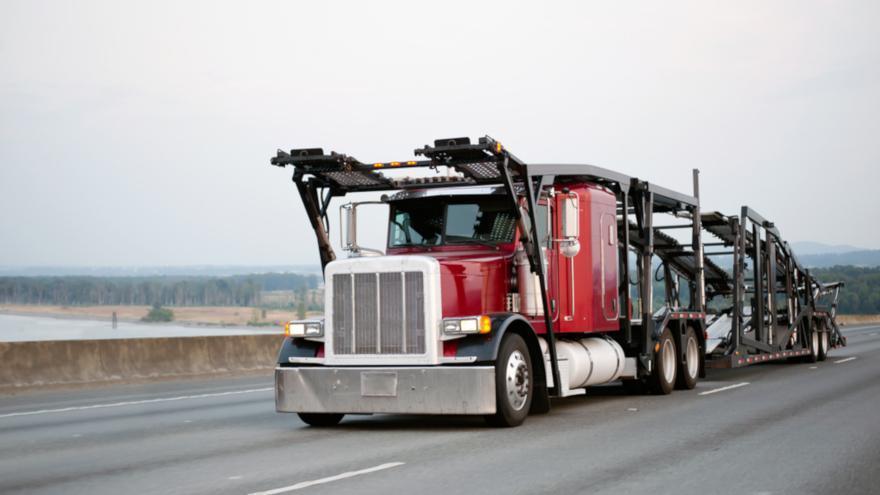Part II: ADESA & Manheim respond to changing recon & transportation demands

By subscribing, you agree to receive communications from Auto Remarketing and our partners in accordance with our Privacy Policy. We may share your information with select partners and sponsors who may contact you about their products and services. You may unsubscribe at any time.
CARY, N.C. –
Editor's Note: This is a special online preview, available only to CMG Premium subscribers, of Auto Remarketing's upcoming special print edition for the NAAA Convention. The excerpt below is Part II of the feature.
In part I of this feature, we looked at the market impacts affecting the reconditioning activities at the wholesale auction industry’s two largest operations: Cox Automotive’s Manheim and KAR Global’s ADESA.
And now we look at the transportation element; a business component that has been watched closely at both Cox Automotive and KAR Global.
“We are definitely seeing through the more digital model, increased geographical reach for our sellers, meaning that when they put a car up for sale, it’s attracting buyers over a broader geography,” KAR chief executive Peter Kelly said in an interview. “That creates a higher likelihood the cars got to move over a longer distance when it sells. Some of that is enabled and driven by the digital transformations of the platform. The other part is just the scarcity of inventory. Buyers are looking a little further afield. One of those changes is probably permanent and one is probably less permanent. It all contributes to cars moving over longer distances.
“Getting cars to a buyer on time is critical. It’s a critical customer satisfaction point,” Kelly went on to say. “We continue to focus on that, making sure we’ve got the carrier network and paying the appropriate rates so cars show up on time. It’s a work in progress. I’m not aware of any huge issues. But we continue to work to build out that network on a daily basis to deliver cars on time.”
Manheim divisional vice president Alan Lang cited data generated from within the Cox Automotive portfolio of companies that indicated the average distance vehicles have had to be transported has jumped from about 225 miles just before the pandemic hit in early 2020 to nearly 450 miles this summer.
Subscribe to Auto Remarketing to stay informed and stay ahead.
By subscribing, you agree to receive communications from Auto Remarketing and our partners in accordance with our Privacy Policy. We may share your information with select partners and sponsors who may contact you about their products and services. You may unsubscribe at any time.
“Clearly the dealers are reaching further,” Lang said. “They’re going to avenues and sources where they wouldn’t have in the past because the demand is just so high making it difficult to source. those distances that cars travel in acquisition, it’s not just from the auction. It could be acquired directly from the consumer. That’s a new trend we’ve seen in the industry. But our transportation arm certainly will solve that for the dealer.”
Consumers are also reaching further out, according to data released this spring.
As reported previously in Auto Remarketing, that has been the mindset for many recent and prospective car buyers, who have gone or are willing to go the extra mile (or dozens of miles) to find that vehicle, amid shortages in both new and used cars.
According to survey data from Cars.com, 9.8% of recent car buyers went to another state to make their vehicle purchase, with 56.9% of that crowd going used and 43.1% going used.
That particular survey was conducted online between May 18-24 among consumers who had purchased in the prior six months.
Just over half of consumers who left their state to make a purchase went 25 miles, according to Cars.com. But some consumers were willing to go even further, with 19.7% going 50 miles, 9.6% going 100 miles and 6.7% going 150 miles.
What’s more, 13.3% traveled 250 miles or more, the data found.
Cars.com conducted a separate survey from May 25-28, and discovered that 12% of respondents planned to buy a car in the next six months.
Nearly two-thirds (65%) of those six-month intenders said they were open to shopping for cars in other states. And 56% said they’d go 100 miles or farther to find that car.
“With the current auto inventory challenges, recent car buyers are going to great lengths to find the car they want,” Kelsey Mays, who is Cars.com assistant managing editor for news, said in a news release when the data was released this spring. “I don’t anticipate this trend slowing down, either. Of consumers currently in the market and shopping for a car, 65% said they would consider purchasing in another state.”


